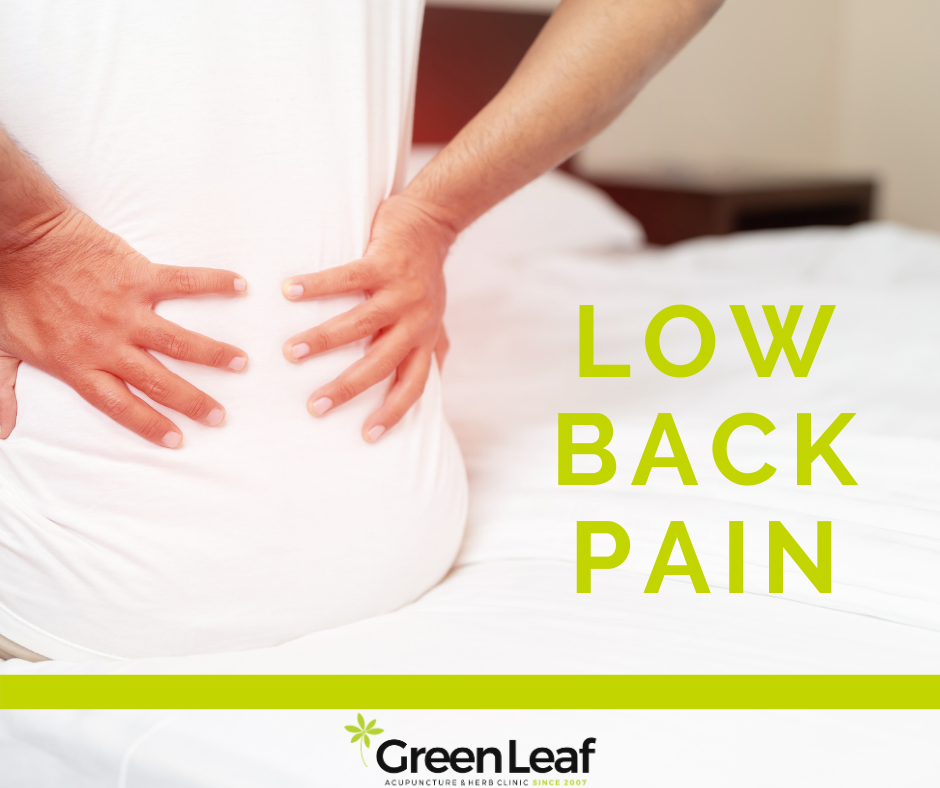Low back pain is by far the most common reason people seek a health care practitioner, with 80% of the world’s population reporting back pain at least once in their lives. In the United States, chronic low back pain is the single highest category of scheduled doctor visits.
The main causes of back pain come from strains (tears in muscles caused by sudden force), sprains (overstretching one or more ligaments in the back), herniated disks (a disc that bulges out of its normal place between two vertebrae, putting pressure on nerves) and sciatica (term that describes pain extending from the low back down into the buttocks and leg due to irritation of a larger nerve in the spine). These can happen from injuries, improper lifting, poor posture, weakening of supporting muscles and ligaments, and degenerative changes.
There is the famous Chinese saying: “If there is free flow, there is no pain; if there is no free flow, there is pain” which describes the role of acupuncture on low back pain very well. What this saying means is that when there is an obstruction in the normal flow of qi, any kind of pain or illness may arise. Acupuncture’s role in combating this pain is by restoring the free flow of qi.
Three Disharmonies for Lower Back Pain
The three types of qi disruptions in the body that result in lower back pain are Kidney qi, qi and blood stagnation, and invasion of cold and dampness.
The low back is most closely related to the health of the Kidney system with the majority of low back pain conditions being associated with the Kidney. In Eastern medicine, to treat lower back pain, the Kidney system is almost always considered in case there is any Kidney deficiency. A weak Kidney qi is detrimental to the free flow of qi throughout the entire body and must be targeted. A strong Kidney system leads to strong Kidney qi which ultimately treats lower back pain naturally in the body.
A stagnation of qi and blood refers to congestion in the lumbar region due to the flow of qi unsuccessfully flowing along the meridians. The result is a feeling of stabbing pain in the lower back that may worsen with movement and create a feeling of stiffness and tightness. Qi and blood can stagnate from a number of reasons. Trauma due to severe movement may be one cause such as lifting, repetitive strain, or experiencing an accident. Another factor is an insufficiency of qi or blood in the body. This can result from several internal factors that include poor diet, too much activity, insufficient rest, excess of the emotions fear and anxiety, and more.
The third disharmony refers to an invasion of cold and dampness which may affect the lower back region and cause pain. The pain can worsen in the morning and especially when the weather is cold and damp. This type of pain may improve with movement and heat application, however, a weak qi or immune system is more susceptible to external invasions.
Acupuncture is best known for its ability to stop pain in general and is highly effective in treating lower back pain. Acupuncture is effective in treating both acute and chronic back pain because it lessens the pain response locally as it relaxes nearby muscles.




